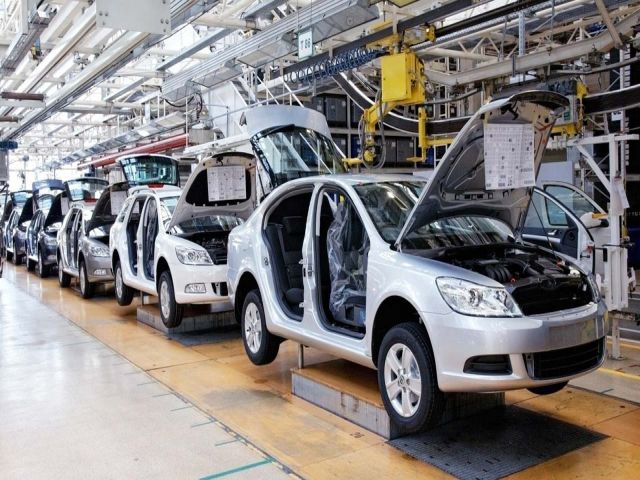Japanese Automotive Industry
The Japanese automotive industry is home to some of the most well-known global brands. Toyota, Honda, Nissan, Mitsubishi, Subaru, Daihatsu, Fuso, Hino, Mazda, Lexus, and many other brands are well-known throughout the world.
They are among the most well-known exports of the country. Furthermore, Japanese automotive components can be found in vehicles manufactured on all six continents.
In fact, automotive related manufacturing takes up 89 percent of the country’s largest manufacturing sector, the transportation machinery industry. Automotive components and vehicles account for 18 percent of all manufacturing shipments in Japan.
Employment breakdown
Automobile manufacturing and related industries employ 5.5 million people in Japan, which is 8.7 percent of Japan’s entire workforce. There are currently 78 car factories in 22 prefectures in Japan.
Auto parts manufacturing employs over 600,000 people in the sector, with another 390,000 employed in the production of raw materials and basic equipment used in automotive manufacturing.
As the international market becomes more integrated, Japanese parts manufacturers are making significant investments in human capital within Japan for the development and production of automotive goods.
Industry Overview
Domestic car production has really been steadily increasing as of 2012, because of a weaker yen as well as a stronger global auto market. This has resulted in an extended economic boom by Japan’s major automakers and a reduced importance placed on domestic sales.
The industry has been growing into an integrated supply chain of companies even though vehicles have become far more complex, now consisting of over 20,000 individual parts. Each vehicle that rolls off the assembly line contains parts from hundreds of suppliers.
As a result, an extensive network of auto parts supply chain partners has grown to become such a significant part of Japan’s economic system, spanning multiple sectors of the economy such as chemicals and rubber.
Investments in automotive technology research and manufacturing are considered a key barometer of the economy in Japan, and these suppliers are on the forefront of bringing that investment into production.
Car Companies
Toyota, Honda, as well as Nissan are Japan’s three leading car manufacturers. Their operations and corporate alliances span the entire planet, and so does their market reach. At the same time, they keep their global headquarters and many Research and development facilities in Japan.
Historically, they have continued to maintain relationships with their suppliers. Some have been operating as sister companies of significantly bigger, more wide and varied mega corporations. Mitsubishi Motors, which is now part of the Renault-Nissan-Mitsubishi Alliance, is an example of a car manufacturer from one of those horizontal keiretsu.
Others have established extensive networks with supply chain partners across the whole of their value chain. The largest of the so-called vertical keiretsu belongs to Toyota, the world’s leading automobile manufacturer.
Smaller Japanese automakers have sometimes aligned with foreign manufacturers to develop factories, vehicles, and technologies together to stay competitive against larger manufacturers.
Recently, these relationships are changing in response to needs for more globalized supply chains. Nissan has already taken many steps to remove itself from traditional keiretsu ties after aligning with French automaker Renault. Honda has also been changing its supply chain and is working with more non-Japanese suppliers in recent years.
Auto Parts Suppliers
The Japanese automotive component industry is extremely diverse, with companies that specialize in chemicals, electronics, textiles, and mechanical components.
Many auto parts manufacturers, also widely recognized as tier-1 suppliers, specialize in a limited variety of products. They exist to allow vehicle manufacturers to outsource the development and production of car parts.
Other companies are more diverse, producing automotive goods as well as products for other industries within their competencies. As a result, many companies that produce goods and services for various industries are still heavily reliant on the automotive industry.
Denso is the largest automotive parts manufacturer in Japan, and consistently a global leader as well. Their specialty is in electronic systems and powertrain control modules. Despite being part of the Toyota group, they sell parts to various car makers in Europe, China, and North America.
Other notable Japanese tier-1 suppliers holding top spots globally include major companies such as Aisin Seiki, Yazaki, JTEKT and Hitachi Automotive Systems, to just name a few.
Global Pressure
In today’s dynamic business environment, Japanese automakers are trying to import parts and components at an increasing rate, forcing the country’s parts suppliers to diversify their product offerings in order to compete with suppliers from other countries of the world. As a result, imports and exports of automotive-related goods have increased.
To remain competitive in a global market, the Japanese automotive industry is investing in Research and Development both domestically and internationally. Annual investment in automotive Research and Development by Japanese companies exceeds 2 trillion yen ($18 billion), accounting for roughly 21% of total Research and Development spending in Japan’s manufacturing sectors.
Future Outlook
Toyota remains the largest automaker in the world by volume. Japanese automotive production is also recently on the rise. As car manufacturers are taking more focus on foreign markets, their investments in innovation and increasing exports are expected to grow as a result.
Japanese automotive suppliers made up a sizable chunk of the Top 100 global suppliers in 2016 and their continued investment in R&D and global expansion show a positive future outlook. Given the changing structures in their home market, it is to be expected that Japanese suppliers will successfully look to score more contracts with foreign automakers as time progresses.
Conclusion
As the most demanding cars in the market, Japanese cars are worth your consideration. And if you want to buy your car from Japanese automakers without any hassle, then buy your car from dreamsmartbd.com.
If you’re a car enthusiast and want a standard, authentic and classic car, then dreamsmartbd.com is your one-stop solution. And if you think that a brand new car is too much for your budget, then you can also find the best used cars at dreamsmartbd’s collection. Don’t worry about the condition of the second hand car, because dreamsmartbd checks over 200 parts and checkpoints to ensure the condition of the car. So, visit dreamsmartbd.com and find the car of your dreams!





